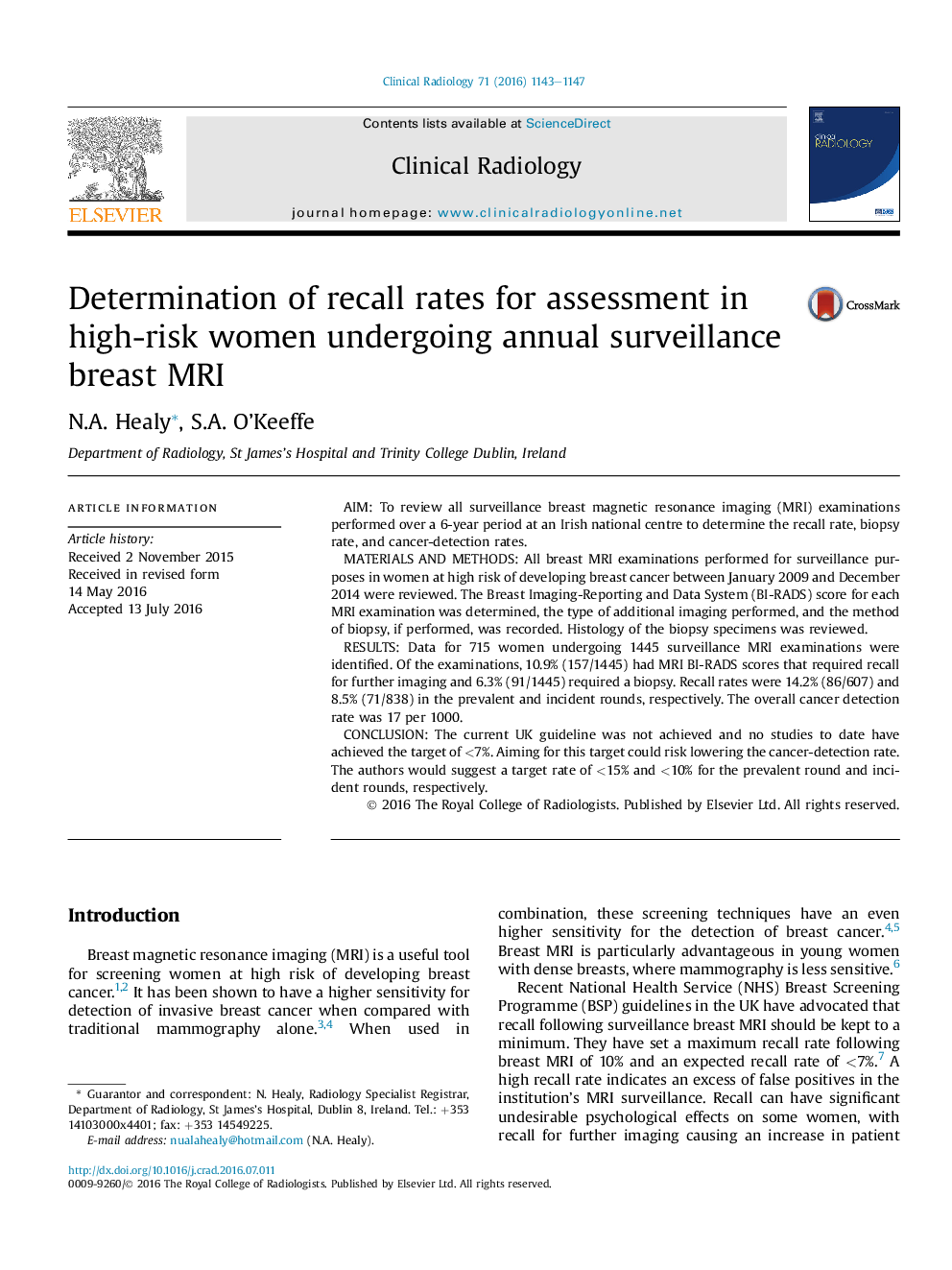| Article ID | Journal | Published Year | Pages | File Type |
|---|---|---|---|---|
| 3981115 | Clinical Radiology | 2016 | 5 Pages |
•Recall after screening breast MRI increases patient anxiety and radiology workload.•UK Breast Screening MRI guidelines have set a maximum recall rate of 10%.•These guidelines advocate an expected recall rate of less than 7%.•We determined a recall rate of 14.2% (86/607) in the prevalent round of screening.•A recall rate of 8.5% (71/838) was observed in the incident round of screening.•No studies to date have achieved the current expected UK guideline target.
AimTo review all surveillance breast magnetic resonance imaging (MRI) examinations performed over a 6-year period at an Irish national centre to determine the recall rate, biopsy rate, and cancer-detection rates.Materials and methodsAll breast MRI examinations performed for surveillance purposes in women at high risk of developing breast cancer between January 2009 and December 2014 were reviewed. The Breast Imaging-Reporting and Data System (BI-RADS) score for each MRI examination was determined, the type of additional imaging performed, and the method of biopsy, if performed, was recorded. Histology of the biopsy specimens was reviewed.ResultsData for 715 women undergoing 1445 surveillance MRI examinations were identified. Of the examinations, 10.9% (157/1445) had MRI BI-RADS scores that required recall for further imaging and 6.3% (91/1445) required a biopsy. Recall rates were 14.2% (86/607) and 8.5% (71/838) in the prevalent and incident rounds, respectively. The overall cancer detection rate was 17 per 1000.ConclusionThe current UK guideline was not achieved and no studies to date have achieved the target of <7%. Aiming for this target could risk lowering the cancer-detection rate. The authors would suggest a target rate of <15% and <10% for the prevalent round and incident rounds, respectively.
